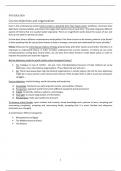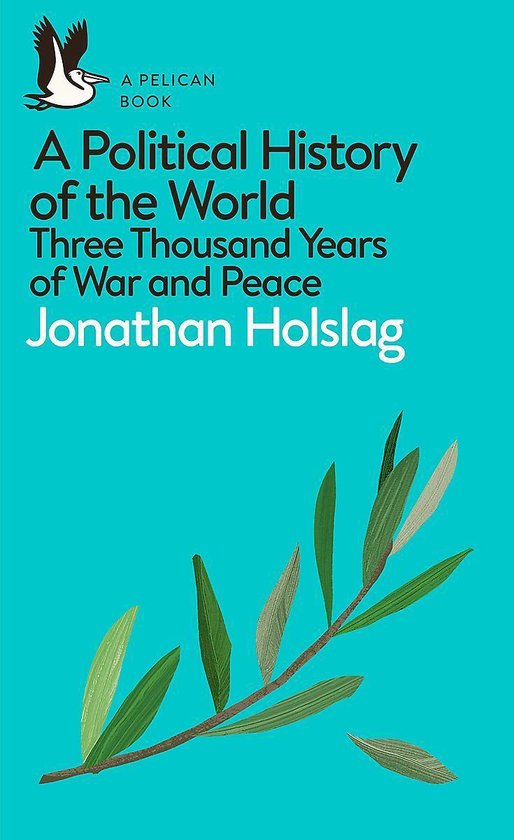Introduction
Course objectives and organization
Even in the contemporary world, history remains a powerful force that shapes states’ ambitions, constrains their
diplomatic manoeuvrability, and colours the images that nations have of each other. This book integrates different
aspects of history that are usually treated separately. There are magnificent works about the causes of war, but
they do not dwell on periods of peace.
So how does history influence contemporary world politics? Are there lessons to be learned, patterns to be found?
Is there anything that we can get from history to help us manage, overcome and understand the issues of today?
History influences the international relations of today (relationships with other nations and trends). Therefore it is
important to understand history, in order to better understand the current situation. In history we see some
trends/evolutions coming back several times: we can learn from these trends to make better policy in order to
improve the positive and avoid the negative
But has diplomacy made the world a better place throughout history?
• Yes: Dialogue in case of conflict - not war, more interdependence because of trade relations set up by
diplomacy, more international organisations → less likely that war will start …
• No: There have always been big international organisations in certain regions, like the EU now, diplomacy
might be in every country’s own interest and in favour of the strong?, there is still as much war and power
struggles …
Course objectives: critical thinking, world citizenship and leadership
1) Knowledge: familiarize you with important events, personalities, thinkers;
2) Perspective: approach world history from different viewpoints (not Eurocentric);
3) Insight: to identify, relations, patterns, and changes;
4) Oversight: to master large bodies of information;
5) Perseverance: make you handle time pressure
To become critical thinker: open mindset and curiosity, broad knowledge and a passion to learn, accepting and
overcoming complexity, accepting and overcoming doubt, accepting that it is never finished and eloquence
(articulate your thought)
A world history: different viewpoints
• Mesopotamia and Egypt
• The Mediterranean and Asia
• The Atlantic
1
,Course Structure
Distribution of Power (layer 1)
• Robert Dahl: power is the ability to make people do what they otherwise would not have done → capacity
to influence that relies on attributes and capabilities
• Power has two aspects: its inputs, or capabilities, and its outputs, or effective influence
✓ Effective influence can be both hard and soft
✓ Inputs: measured in terms of its land and natural resources, its treasure, its military power, its
political system, its legitimacy as a state …
• Internal (= power over its citizens) and external (= power over other polities)
• The balance of power: how the balance of power shifts, but also what shapes power?
• What shapes the accumulation of power? Democracy? Market?
✓ Is there a political system that is more abusive than power? Is it so that some forms of political
organization hold an advantage over us?
• Polity’s capabilities: land, treasure, military power, political power, legitimacy, trade
• Rise and fall of empires (e.g. strengths and weakness: power depended on holy trinity)
• E.g. evolving position of important regions, shaping factors of world politics …
Political Organization (layer 2)
Polities have taken different forms: cities, city states, nation states, multinational unions, and empires ranging from
indirect trading ones to the directly territorial
• Differences in political system: monarchies, republics, dictatorships, democracies
• Foreign policy: openness >< isolationism → differences in form
• E.g. the role of religion and ideology, the importance of public opinion in world politics
• They have coexisted with other influential agents such as religious groupings, international corporations,
and pirates
• Was there a linear trend from highly fragmented international orders to more unification? Is it so that states,
throughout history become less relevant?
The predominant assumption a few years ago was that we would live in an egalitarian, borderless world, and that
states were about to become powerless. Now nationalism is back, people call for well-protected borders, military
expenditure is on the rise, and governments interfere incessantly in economic affairs.
Cosmopolitanism1: there is tension between cosmopolitan and the importance of geographically political power
(borders) → pay attention to factors that caused these shifts
• Cosmopolitans: the elite that hops from one city to another and considers the success of diplomacy to be
measured by the number of dialogues established (opening age)
✓ It insists that the history of great power politics has ended and that major wars have become much
less likely → want a borderless world
✓ Competition, is much less likely to spark wars → economic interdependence
• Others believe that the open world has not benefited them, that globalization is responsible for economic
problems, and that migrants and multinationals are a threat
✓ They want to be protected against a world of injustice and insecurity
1 the idea that all human beings are members of a single community
2
,We are now entering an age of closing in which there is more and more protectionism with limits and moderation.
This shift comes at a moment when the global levels of military spending are once again higher than during the
darkest hours of the Cold War.
The number of armed conflicts is also growing and other international disputes have become tenser. So it’s
important that leaders of tomorrow should be guided by the understanding of the people’s wellbeing, and of history
“to be ignorant of what occurred before you were born is to remain always a child”
The Interaction between Political Units (layer 3)
• Nature of international relations, patterns in war and peace and factors causing war and peace →
diplomacy, peace treaties, conferences, marriages, wars …
• E.g. role of large conferences, international organizations and international law, merits and limitations of
diplomacy, the evolving responsibilities of diplomats …
People have stood up to proclaim that the very nature of international relations was about to change for the better:
competition would continue, but it would become less violent
• Just as the US president H. Truman vowed to protect the free world and Chinese president Xi Jinping has
held op the vision of a harmonious new world order
• But underneath the chaos of international politics there are forces that shape all societies, such as humans’
lust for power and the consequent rivalry between states
Mankind has always longed for peace between states and empires and tribes, it was something universal. So can
we deduce any pattern in the occurrence of war and peace throughout history? What has made war mote prevalent
than peace?
• Best explanation security dilemma: where one country grows and tries to advance its influence to protect
itself, to build prosperity, will always be a threat to others
• Today we consider ourselves to be nice people and care about justice → the very effect of a way of life
usually is a menace and challenge to other
Peace and war are the core business of world politics where diplomacy bears an enormous responsibility when
situations of great peril arise → weighty business → explains why people are still attracted to it
The People and Their Planet (layer 4)
The history of the relationship between people and the planet → the importance of nature and environmental
change + how people relate to the environment
• The consequences of the environment: migration, droughts, food scarcity …
✓ These caused social upheaval and war → triggered a lot of polities to expand
✓ E.g. world experienced change of climate, it destabilized entire societies & caused migration
• For much of history one of the principal tasks of monarchs has been to intercede with the gods for
favourable weather
• The Indian court advisor Kautilya and the Chinese strategist Sun Tzu were already advising leaders to strike
a balance between desires of his people and the resources of nature → so do we consider global warming
as a new component?
• The effect of natural resources on the distribution of power
3
, Thinking about International Politics/Relations (layer 5)
Thinking how the nature of world politics has evolved throughout history. Throughout history there always were
schools that tried to advance their understanding of world politics
• Idealists: concerned about how the world should be, not about how it functions
✓ Comes with a dream and hope, that hope is as old as the history of world politics
✓ Polities will always strive for autonomy, security, and power; as a result, cooperation and peace are
unlikely to be sustainable
✓ Shift from optimist idealism to pessimist realism is nothing new
• Liberals: trade made polities more dependent on each other and that
• this interdependence made conflict more expensive
• Realists: implies that the world continues to be affected by this balance of power
✓ If one country gains power, and the other loses power, you get conflict
✓ States cooperate differently because they’re guided by their own interest
✓ There is also limited understanding
✓ international institutions are manifestations of balance of power
• Constructivists: shape the ideas behind power then also shape course of world politics
✓ That even their very DNA could be changed, away from a predisposition to selfish national interests
and towards a greater focus on the common good
It’s about pessimists and optimists. Thinking about interactions, governance, war and peace
E.g. evolving responsibilities of diplomats, the importance of public opinion in world politics …
What is the book about?
The book takes a keen interest in the impact of world politics on the lives of ordinary people. Besides the effects of
economic change, it was often the outbreak of war that had the greatest ramifications, and so we will attempt to
trace the causes and consequences of conflicts, investigate how they were won and lost, analyse how they were
perceived, as well as follow the diplomats in their desperate attempts to stop them
1 Heavens Obscured (the prelude: before 1000 BCE)
Time Period Geographical Places Political Units World Population
The Prelude: before North Africa, North Asia, Egypt, Mesopotamia,
60 million
1000 BCE Modern Middle East India, China
The monarch (King Dhritarashtra) underestimated the threat of war, the resentment between the Kauravas and
the enemy Pandava tribe, and the boundless ambitions of his own belligerent son
Thus concludes the tragic episode at the heart of the Mahabharata (river in India & China): the power brokers have
overruled the voices of peace and evil has prevailed over good. One of the oldest known works of literature to
address the struggle between the ideal of peace and the reality of war, this anonymous epic poem can be traced
back to origins in North India in around 1000 BCE
This period referred to as transition from the Bronze Age to the Iron Age, is the earliest to leave us sufficiently
widespread written evidence from around the world to understand how foreign relations were organized and how
people thought about them
4





